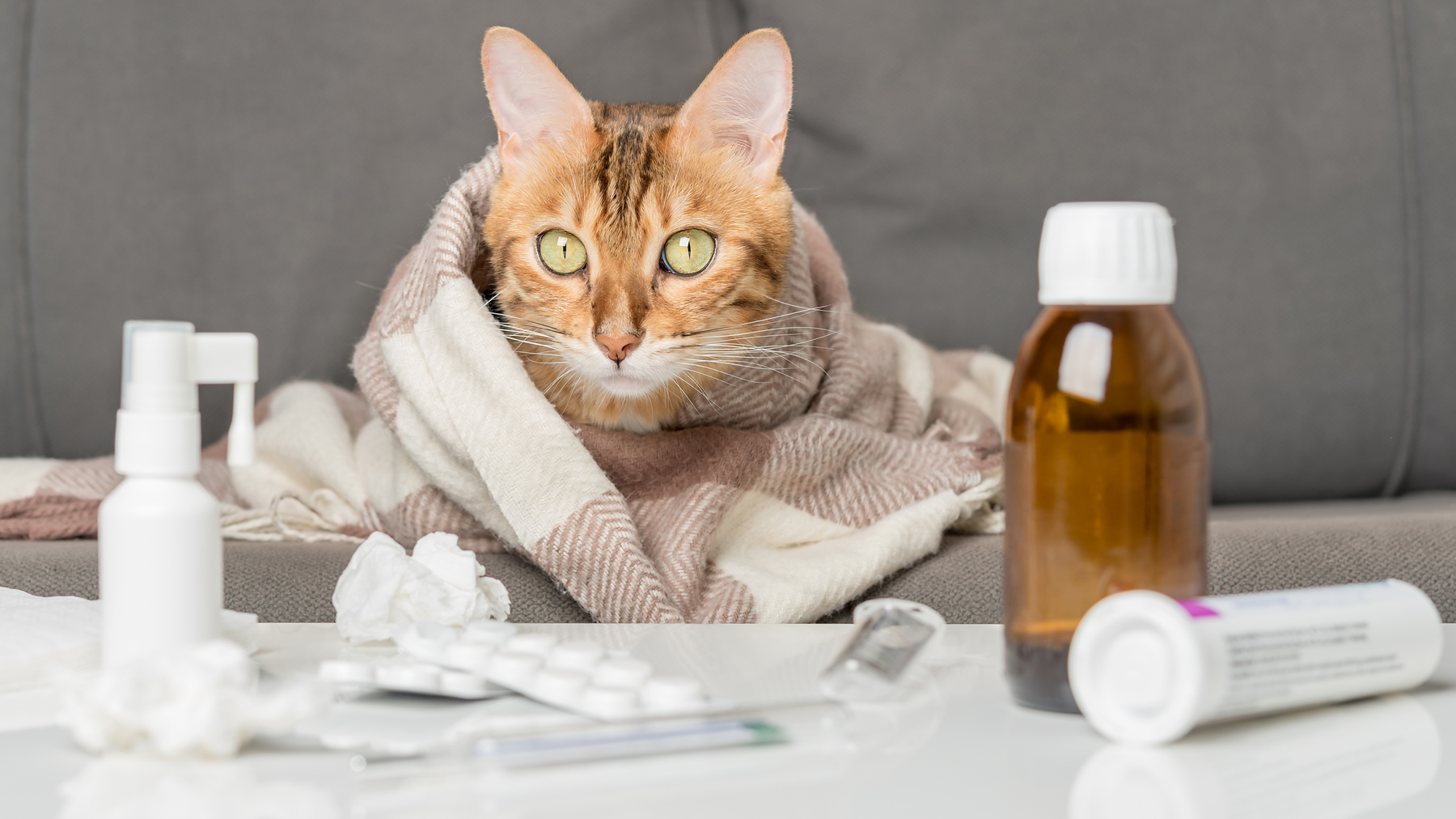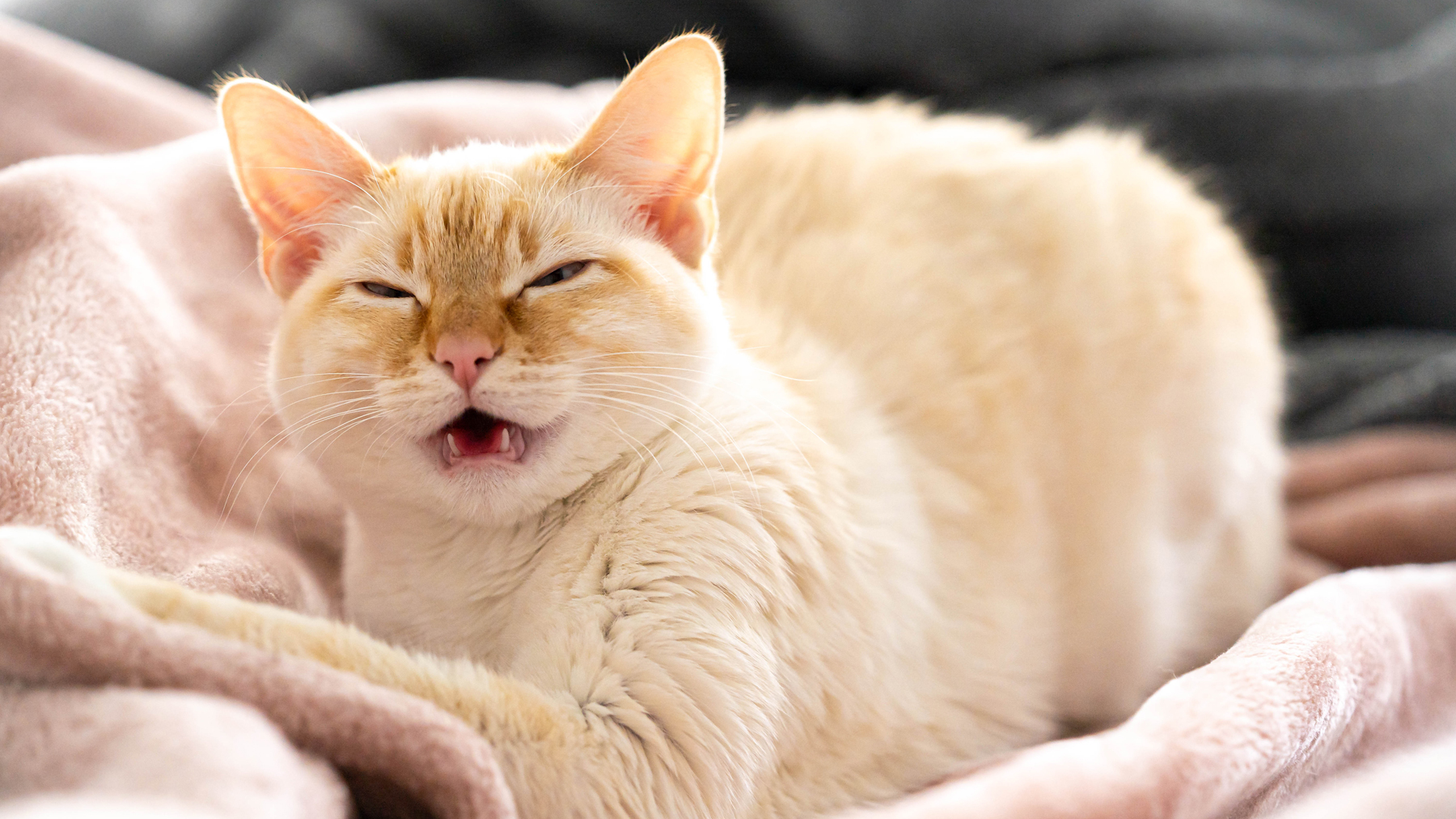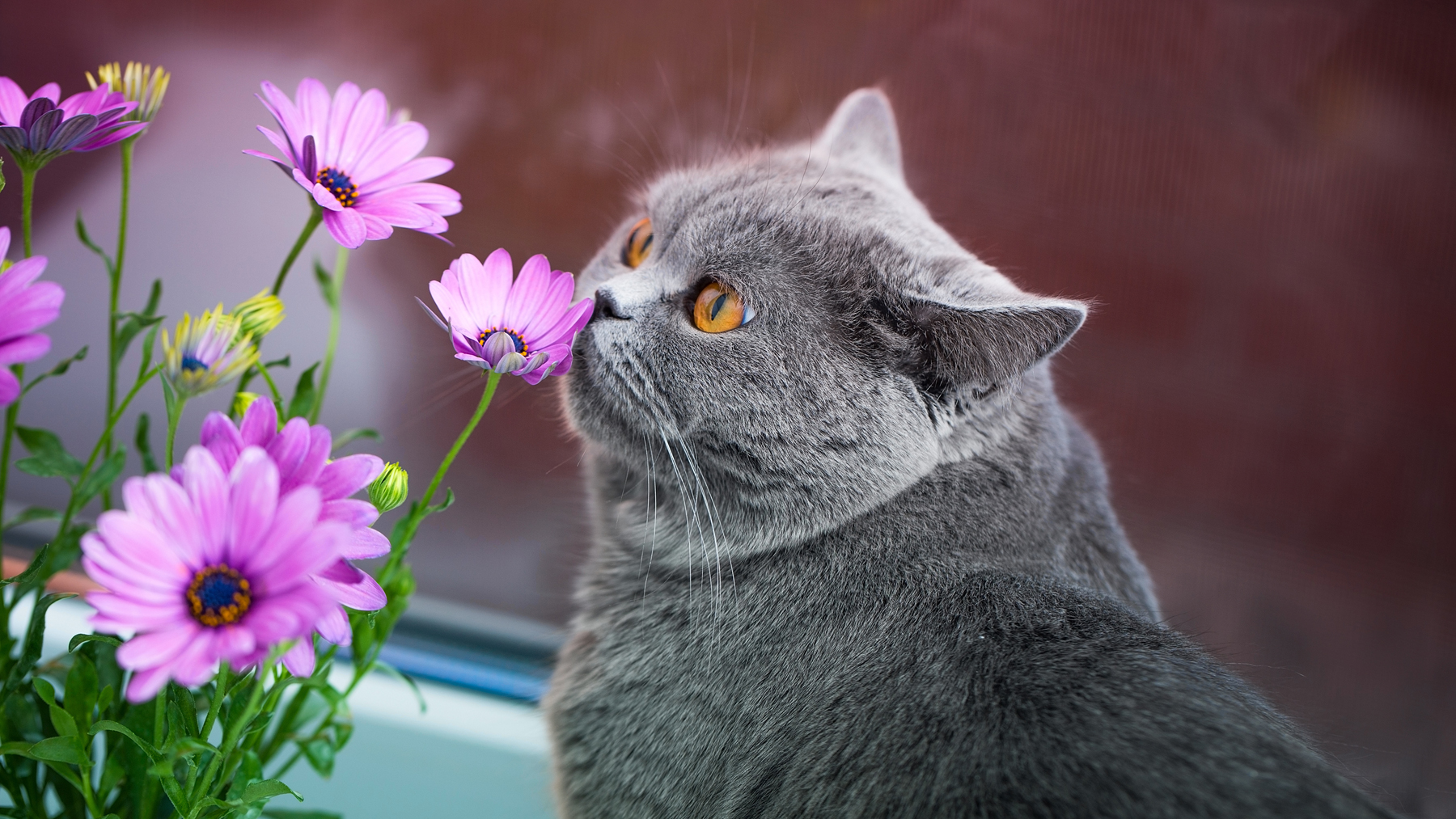
If you’re wondering ‘Can cats have allergies?’ we’ve got all the information you need about symptoms and management.
If you suffer from allergies, you might develop sneezing, a runny nose, or watery, itchy eyes during the hay fever season, or you might have to avoid contact with particular foods, medications, or, heaven forbid, cat hair! (By the way, if you are allergic to cats, why not check out our article for tips on how to manage your symptoms?) But can cats have allergies?
Yes! Cats can have allergies, just like humans can, and if your cat is affected you’ll know they can be a little frustrating to deal with. After all, no pet parent wants to see their cat experiencing recurring or chronic symptoms.
In this article, we’ll explain which allergens commonly cause symptoms in cats, which symptoms you might expect to see, and what treatment and management options are available, including changes you can make in your home such as opting for some of the best cat food for allergies that could help improve your cat’s allergy symptoms.
Can cats have allergies?
Just like humans, cats aren’t born with allergies, but they can develop them at any point during their lives. This is because, for an allergy to develop, your cat's immune system needs to be exposed to the allergen, which is a protein that the body recognizes as foreign and develops antibodies. Then, the next time your cat encounters the same allergen, the immune system already has antibodies and can react quickly and excessively. Allergies in cats are quite common, and it wouldn’t be unusual to see two or three cases a week when I was working in full-time veterinary practice.

Can indoor cats have allergies?
If your cat doesn’t go outside, you might think they’re safe from allergens. After all, plants and pollen are outside, and you’d hope that your home is free from fleas. However, environmental allergens are airborne and they’re everywhere, so staying inside won’t prevent your cat from developing allergies to pollen or parasites, although you might expect more severe symptoms in cats who have direct contact with plants. Equally, indoor cats and outdoor cats would be similarly affected by food allergies, while indoor cats would likely have more exposure to indoor allergens, like house dust mites, than cats who venture outside sometimes. In the UK, where I practice, the majority of cats spend some time outdoors, but I would still consider allergies as a potential diagnosis in indoor-only cats.

What are the most common cat allergies?
The most common allergies in cats are flea saliva, pollen, molds, mites (including house dust mites), and food (commonly animal proteins like meat and dairy products). However, contact allergies, where the contact of the skin or other tissues with an irritant substance causes a localized reaction, do occur infrequently. Irritant substances can include parasite control treatments and chemicals used for cleaning or DIY, which is why it’s so important to use pet medications according to the veterinarian’s instructions, report any side effects, and keep chemicals safely out of your cat’s reach.
By far the most common form of cat allergy that I have seen in practice is Feline Allergic Dermatitis (FAD). Many pet owners assume that only a large flea burden will cause their cat any serious concerns, but in reality, the majority of FAD cases I have seen have only had one or two visible live fleas and not much flea dirt. This is because just one bite from a flea introduces their saliva, which contains a protein that can trigger an excessive allergic response. Once the allergy symptoms start, itching and irritation will cause your cat to overgroom, causing self-trauma and perpetuating the problem.
How do I know if my cat has allergies?
Not every cat with allergies will have the same symptoms, even if they are allergic to the same thing. Affected cats may show gastrointestinal symptoms like vomiting and diarrhea, noisy, rapid, or labored breathing (feline asthma), or skin symptoms like itchiness, hair loss, or a rash. Research published in The Canadian Veterianry Journal has categorized skin reaction patterns that can occur in cats with allergies as follows:
- Miliary dermatitis – Small, raised, pink lumps on the skin, usually affecting a cat’s back or rump. These may become scabby or crusty, especially if your cat is scratching and overgrooming due to intense licking. Not all cats with miliary dermatitis are itchy though, so don’t delay a visit to the veterinary clinic because there is no obvious itch.
- Self-inflicted alopecia – This refers to hair loss caused by overgrooming or scratching, and if your cat is affected you might also notice they regularly bring up hairballs.
- Head and neck pruritis – In some instances, cats with allergies experience intense itching and irritation of their face, head, and neck, often leading to extensive hair thinning, hair loss, and skin ulceration.
- Eosinophilic granuloma complex – These skin lesions can develop due to feline allergies and include indolent ulcers, which affect the lips, especially the corners of the mouth. Eosinophilic granulomas and plaques, which are ulcerated or thickened, raw areas of skin, usually between the legs or on the belly, are also part of this complex, although your cat may only experience one type of lesion.
Of course, cats can also experience an anaphylactic reaction, which is a very serious and sudden allergic reaction, as seen in humans. Thankfully, this is very rare, but if you have concerns that your cat is having an anaphylactic reaction you must contact your veterinarian without delay.
How do you treat a cat with allergies?
Treating a cat with allergies isn’t easy and is often frustrating, because allergies cannot be cured, only managed. Management relies on reducing exposure to the allergen, if possible, which if your cat has FAD means strict use of flea control on all pets and the household. If a food allergy is suspected, feeding hypo- or an-allergenic cat food means that the food proteins will be hydrolyzed, changing their shape to avoid recognition by your cat’s immune system. Of course, allergen avoidance isn’t possible for environmental allergens, and in these cases and those that aren’t effectively controlled, medication may be required. Medication options include steroid creams, tablets, injections, and inhalers, as well as other anti-allergy medications. Your veterinarian will be able to recommend the most appropriate one for your cat and their symptoms.

Cats with allergies could have a range of symptoms, from a cough to a rash, or even diarrhea. The treatment and management options will depend on the type of allergy and your cat’s symptoms, but rest assured, your veterinarian will help guide you in gaining control.
If you're looking for some more expert vet advice on your feline queries, stick around and to find out a vet's opinion on is wet food bad for cats? Or check out this vet's guide to handling upset stomach in cats.







